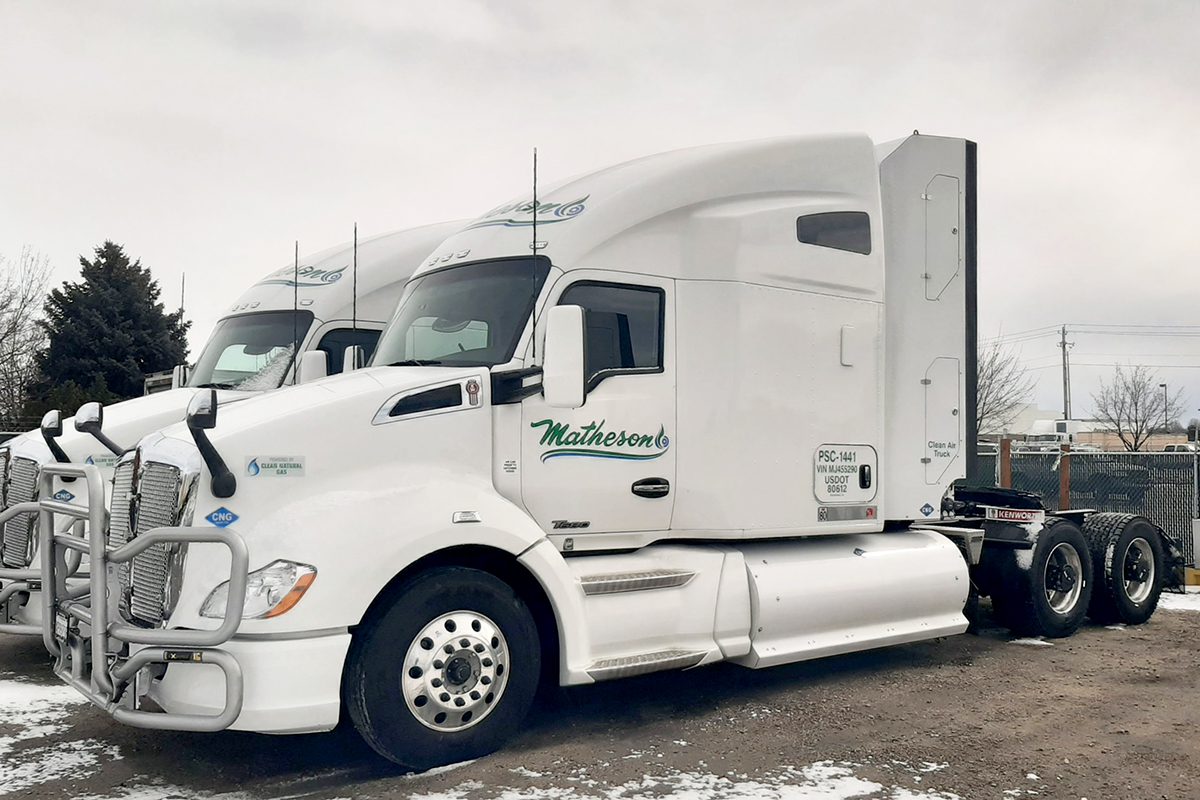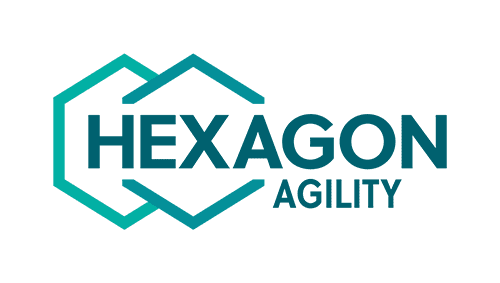The future of clean transportation continues to evolve, with several clean fuels and technologies providing fleets with many choices when trying to reduce carbon emissions and create a more sustainable future for their clients, employees, and the communities they serve.
While some of these technologies continue to develop, others are available now and enable a jump-start on emissions reductions through utilizing the only fuel that has been quantified as carbon negative — renewable natural gas.
How Can a Fuel be Carbon Negative?
Renewable natural gas, RNG, is derived from organic sources, as compared to geologic compressed natural gas (CNG), which is extracted from subsurface rock formations via drilling. RNG and CNG are chemically identical to each other and can be used interchangeably with natural gas vehicles. RNG is processed from decaying organic materials in agricultural, landfill, and wastewater treatment facilities. Accordingly, this clean fuel has a double impact on carbon emissions by not only capturing harmful methane molecules that would have otherwise entered the atmosphere, but also by displacing diesel, giving fleets near-zero tailpipe emissions. Because methane is 75 times more damaging to the climate than carbon dioxide over a 20-year timeframe, cutting methane emissions through the use of RNG results in even higher carbon reductions when calculated well-to-wheel.
“With these two benefits, you can quickly see how RNG has become a desirable, inclusive, long-term solution for fleets to cut carbon emissions with an immediate impact on climate change through RNG’s reduction of up to 200% in well-to-wheel emissions,” said Eric Bippus, Hexagon Agility’s Senior Vice President of Global Sales and Marketing. “Another advantage for today’s fleet is the vast quantity of immediately available compressed natural gas platforms offered, warranted and serviced by OEMs in North America.”
Last year, the California Air Resources Board determined that RNG’s carbon intensity, which is established by evaluating the total carbon emissions of a fuel from production to consumption, was negative for the entirety of 2021.
Increasing Availability, Stable Prices
With the increasing uptick of the RNG market in North America, fleets have an even greater ability to transition to this carbon-negative fuel. According to a study commissioned by Hexagon Agility, while there is an ample supply of RNG for commercial vehicles, currently only a small percentage of potential biomass is being tapped for RNG production. When looking at the potential biomass provided by agricultural waste and manure, landfills, and wastewater, there is a potential to increase RNG production by approximately 70 times its current status.
“We could run every Class 7 and 8 vehicle in the North American market with this potential fuel supply,” said Ashley Remillard, Hexagon Agility’s Vice President of Legal and Government Affairs. “Cutting emissions from transportation helps meet many of the global targets set by the recent United Nations Climate Change Conference, as this sector produces 20% of global CO2 emissions.”
On top of the ability to quickly ramp up RNG production, cost — a major sticking point for any fleet considering a move away from diesel — is not an issue with natural gas. The volatile diesel market has been a roller coaster during the past year, jumping from approximately $2.50 a gallon at the start of 2021 and ending at $3.48. As of the end of March 2022, average diesel prices increased to $4.23 a gallon, according to the U.S. Energy Information Administration. Throughout this time, natural gas stayed steady, increasing only about 10-15 cents throughout 2021.
“The use of RNG is a very important part of UPS’s strategy to increase alternative fuel consumption to be 40% of total ground fuel purchases by 2025,” said Mike Whitlatch, UPS Vice President of Global Energy and Procurement. “We’re using both liquid natural gas (LNG) and compressed natural gas (CNG) as bridging fuels to increase our use of RNG. This will have a measurable impact as RNG yields up to a 90% reduction in lifecycle greenhouse gas emissions when compared to conventional diesel.”
Fleets Have Already Made the Move
Unlike many of the new and emerging clean transportation technologies, more and more fleets are continually testing, assessing, and realizing the benefits of moving to RNG. National and global fleets, such as UPS and Frito-Lay, have already made the move, paving the way for others to do the same.
Last year, UPS made a commitment to purchase 250 million diesel gallon equivalents of RNG over the next seven years, fueling LNG trucks throughout the Midwest, as well as CNG trucks in Visalia and Moreno Valley, California. The global delivery service provider has also announced it will purchase 6,000 natural gas-powered trucks in an exclusive agreement with Hexagon Agility to supply fuel systems, doubling-down on its RNG pledge.
Frito-Lay has made a similar promise, working to convert its fleet to 100% natural gas sourced from renewable resources, eliminating 6.7 million gallons of diesel from the road. Currently, approximately 50% of the company’s over-the-road tractor fleet is powered by natural gas.
U.S. Postal Service transporter Matheson Postal Services has also jumped onboard the natural gas train, hauling mail around the country on a growing fleet of Kenworth CNG-fueled T680 tractors and CNG T680 sleeper-cab tractors. Both models feature Hexagon Agility’s ProCab 175 and dual ProRail 45 fuel systems, providing more than a 1,000-mile range.
“We have seen the benefits of investing in CNG and RNG, reliable clean fuels that provide the power, range, and performance we require to keep our customers happy and meet our sustainability goals,” said Mark Matheson, President and CEO of Matheson Trucking, Inc. “Since we’ve added the dual ProRail 45 fuel system, the increased range also takes us out of the short-haul restrictions that other clean technologies offer and allows us to provide sleepers to our drivers who are transporting our cargo all over the country.”
Its fleet of 95 natural gas trucks haul 78,000-pound loads through varied terrains for more than 16.4 million miles annually. Each of Matheson’s natural gas Class 8 trucks runs an average of 185,000 miles per year, providing significant emissions reductions.
Whether you are looking to cut costs or emissions, the path to both is clear — RNG can help fleets transition from diesel to a cleaner and more cost-effective fuel quickly and without the growing pains of other currently developing technologies.



